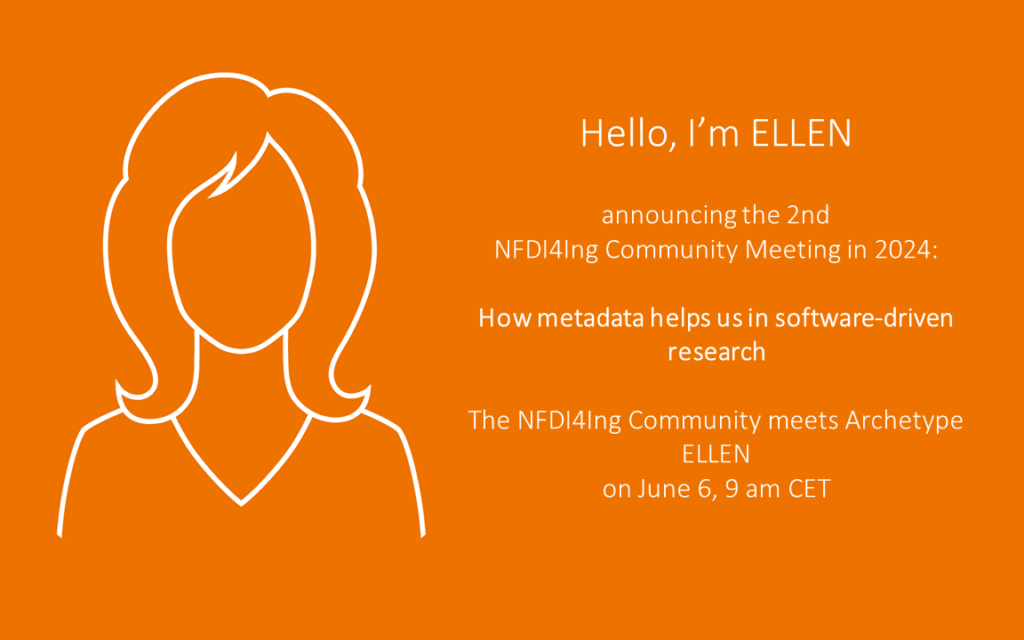The transparent and sustainable scientific exchange of methods, results and findings along the FAIR principles is one of the greatest challenges facing science today. To show how these challenges can be met with innovative technologies, the most recent NFDI4Ing Community Meeting took place on June 6th. Scientists from all communities had the chance to meet our archetype ELLEN and get insights into a range of tools and services which support scientists in their daily software-driven research.

The transparent and sustainable scientific exchange of methods, results and findings along the FAIR principles is one of the greatest challenges facing science today. It can no longer be managed by conventional and outdated communication systems, but requires innovative technologies to organize scientific information in a structured and standardized representation that is understandable and processable for humans and machines. In this context, metadata is of crucial importance. It not only allows the core information of research data to be described and made more comprehensible, but also enables machines and researchers to efficiently search, compare and integrate large amounts of information.
Against this background, the most recent NFDI4Ing Community Meeting took place on June 6th, at which scientists from all communities who use research software and datasets as part of their investigations and disseminate their findings in form of text publications had the chance to meet our archetype ELLEN. This online event used a real-life application example from the research field of public transportation planning to demonstrate how scientists can use metadata to describe and link their text publications, research software and datasets to increase the visibility and impact of their research. In the course of the event, three tools and services were presented: “DataDesc”, “SciKGTeX” and the “Open Research Knowledge Graph (ORKG)”, which support scientists in their daily software-driven research.
Patrick Kuckertz
Oliver Karras
Jan Göpfert
Noah Pflugradt
Jann Weinand
Detlef Stolten
